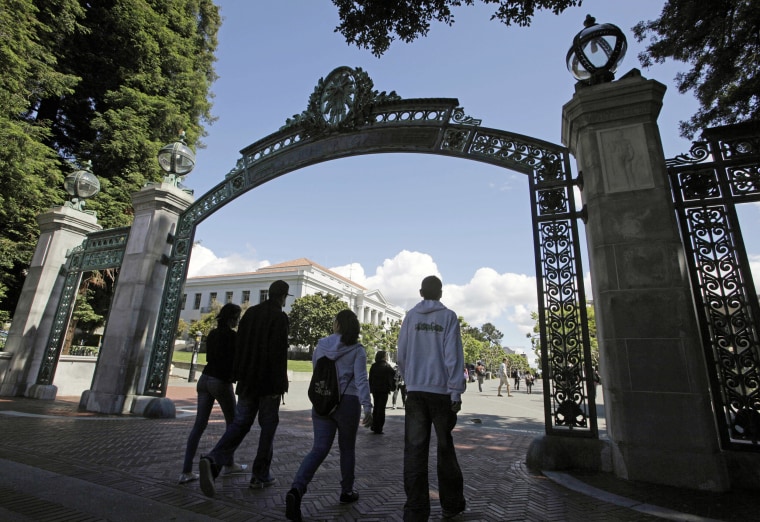Education experts say the recent record number of 2022 applications to the University of California system — the highest in its 154-year history — points to progress in increasing the representation of students, addressing the need to boost enrollment of Latinos and other students of color.
Chicano and Latino students were the largest ethnic group of freshman applicants for the third year in a row, at 38.1 percent, a 4.1 percent increase over the previous year, according to a recent University of California report.
Applications from Black students increased by 2.8 percent over the past year, while those from Asian American students increased by 5.8 percent.
"It's getting better, but we have a long way to go," said Lisa García Bedolla, the University of California, Berkeley's vice provost for graduate studies and a professor in the Graduate School of Education.
In its report, UC touted the system's increased outreach efforts as having contributed to the boost in applications.
The campus at Berkeley has reached out to underserved students in parts of the state, including the Central Valley, parts of Northern California and the Imperial Valley, by holding virtual meetings and virtual campus tours, Bedolla said.
“We’ve been much more intentional about reaching out to certain parts of the state where we aren’t getting applicants," Bedolla said, but "which tend to be the most diverse."
Removing the SAT and ACT requirement from the application process has also boosted the number of applicants, Bedolla said.
The UC system unanimously voted in May 2020 to suspend SAT and ACT standardized tests through 2024, and it plans to eliminate them for California students by 2025.
“I think that matters, in terms of students’ feeling like they have a shot,” she said.
Overall, UC said, California freshman applications increased by 3.3 percent compared to last year and by 16.8 percent compared to fall 2020, during the first year of the coronavirus pandemic.
There was also a boost in applicants’ socioeconomic diversity, with the proportion of California freshman applicants from low-income families increasing by 46 percent and California Community Colleges transfer applications from low-income families growing by 56 percent.
The report said enrollment in the state's community colleges has decreased dramatically since 2020 because of the pandemic.
For Latinos, who account for almost half (47.8 percent) of all confirmed Covid-19 cases in California and 44.1 percent of all confirmed deaths, the pandemic has added economic, health and family stressors outside the classroom, Bedolla said.
“If you are already sort of economically precarious and add the pandemic on top of it, a model of a residential four-year university experience is much harder to do if you are needed in order to support your family," she said.
“Our challenge last year wasn’t admissions. It was yield," she said, referring to the percentage of students who enroll and attend a given college after they have been accepted.
According to an analysis by the San Francisco Chronicle, while Latinos represented almost half of all Californians ages 18 to 24 — 49 percent — they accounted for 25 percent of the overall 2021 UC freshman class.
Tolani Britton, an assistant professor at the Graduate School of Education at UC Berkeley, cited the importance of outreach not just through the application process but also in enrollment and college completion.
"It also requires the institutions to look for those students to let them know about the opportunities," Britton said, "and then once they arrive on campus to ensure that campuses are supporting them, not just to higher education, but through higher education."
Follow NBC Latino on Facebook, Twitter and Instagram.

